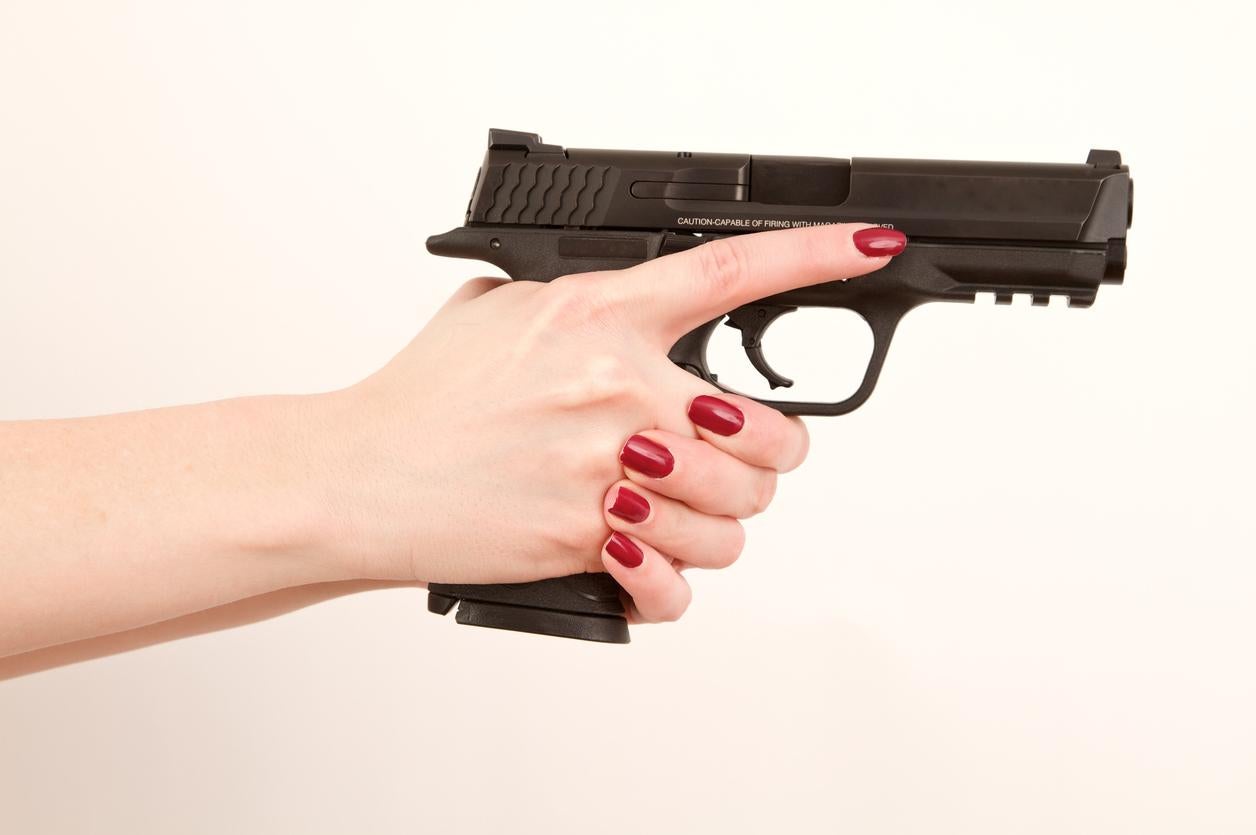Rise of the female bodyguard: Why more high-profile people are looking to women for protection
"A female tends to be better at conflict resolution rather than making the situation worse"

Your support helps us to tell the story
From reproductive rights to climate change to Big Tech, The Independent is on the ground when the story is developing. Whether it's investigating the financials of Elon Musk's pro-Trump PAC or producing our latest documentary, 'The A Word', which shines a light on the American women fighting for reproductive rights, we know how important it is to parse out the facts from the messaging.
At such a critical moment in US history, we need reporters on the ground. Your donation allows us to keep sending journalists to speak to both sides of the story.
The Independent is trusted by Americans across the entire political spectrum. And unlike many other quality news outlets, we choose not to lock Americans out of our reporting and analysis with paywalls. We believe quality journalism should be available to everyone, paid for by those who can afford it.
Your support makes all the difference.The chances are that when you picture a bodyguard, you’re imagining a tall, big, broad, burly man with biceps the size of tree-trunks and hands that could crush skulls.
But more and more these days, that image is wrong. Increasingly, women are being hired as bodyguards - and average-sized women too.
The reason is that huge stereotypical-looking bodyguards - technically called close protection, personal protection or executive protection officers (CPO/PPO/EPO) - actually draw attention to whomever is being protected.
Women, on the other hand, are more likely to be mistaken for nannies.
“Nine times out of ten the people I work for want someone who can blend in,” commercial PPO Lisa Baldwin explained to The Times. “They don’t want obvious security, like the kind used by Madonna or Britney Spears. Those bodyguards, the big guys, actually draw attention to the clients and put them at more stress and risk.”
Baldwin dresses down which allows her to look like a friend or nanny. “With the bulkier guys, people will think: ‘Why have those kids got a bodyguard?’” she says.
“And I’d like to see those big guys run. They are fine if you are just keeping fans back, but I am dealing with things like kidnap threat and might have to get out of a situation very quickly. Pure muscle isn’t enough.”
Baldwin is by no means a huge woman either and believes the ex-military look can be a disadvantage: “I remember the first job interview I had, when I was 20, I was up against another candidate who looked like GI Jane, all muscles and shaved head. And I got the job.
“They were more interested in whether I had protective driving skills, which I had, and a firearms cert, which I also had. In fact they didn’t want me to carry a firearm, but to show I had training in that field.”
Since Baldwin became a PPO 13 years ago, the number of women in the industry has soared along with demand. She says that there’s been more interest from Muslim families in particular, “who might not want the women mixing too closely with men. And then there are the bathrooms — if you have a male bodyguard and a female client, that’s going to be an issue.”
But there are still relatively few female PPOs and not enough to satisfy demand, according to Neil Davis, a former army officer who runs a Glasgow-based security company called Horizon.
“Clients who might not want their children looked after by a man often specify a woman,” he told The Times. “These days, the good female PPOs can work all year round while men struggle to find jobs, especially as there has been an influx from eastern Europe competing for work. Such is the demand for women, they get paid more than the men at the moment.”
However, Davis says women have to be the whole package - not only do they need to be trained but they usually have to be fluent in one or two foreign languages and qualified in something like scuba diving or skiing.
David Cameron and Tony Blair both had female bodyguards, and Davis says there are certain advantages to using a female CPO when the client is male.
“If I was putting together a security team of eight, I’d like at least two, maybe three, women in the mix. Do that and the group dynamic instantly changes. Women lower the testosterone level.”
To illustrate his point, Davis gives the example of when things start kicking off in a bar or pub: “If a man steps up to confront [your client] then the situation can escalate.
“If a woman does it, the aggression levels drop because, no matter how drunk they are, most men are conditioned to know it is wrong to hit a woman. A female PPO tends to be better at conflict resolution rather than making the situation worse.”
Join our commenting forum
Join thought-provoking conversations, follow other Independent readers and see their replies
Comments